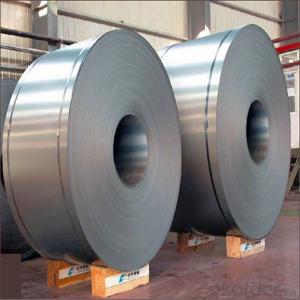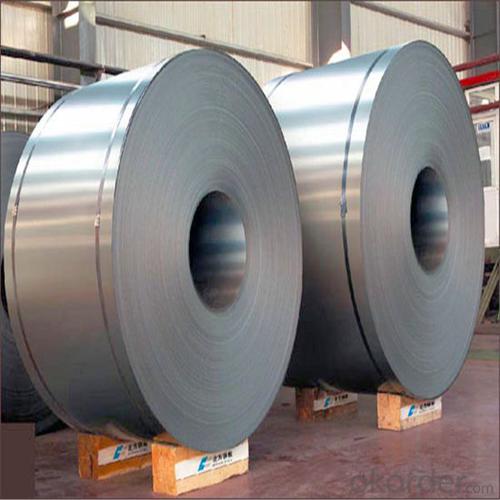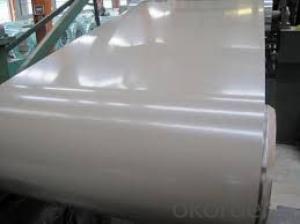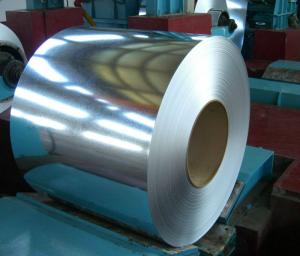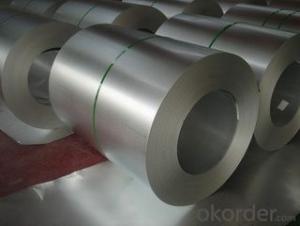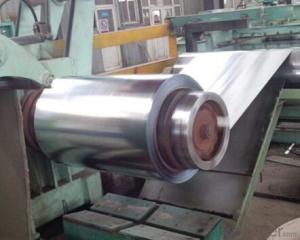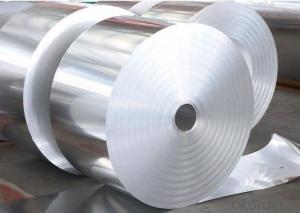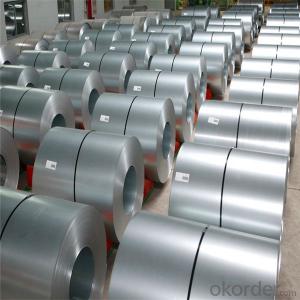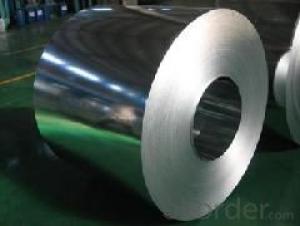Cold Rolled/Hot Dipped Galvanized Steel Coil Made in China
- Loading Port:
- China main port
- Payment Terms:
- TT OR LC
- Min Order Qty:
- 23 m.t.
- Supply Capability:
- 50000 m.t./month
OKorder Service Pledge
Quality Product, Order Online Tracking, Timely Delivery
OKorder Financial Service
Credit Rating, Credit Services, Credit Purchasing
You Might Also Like
Specification
Standard:
ASTM,GB,JIS
Technique:
Cold Rolled
Shape:
Round
Surface Treatment:
Galvanized,Color Coated,Oiled,Dry
Steel Grade:
Q195,Q215,Q235
Certification:
ISO,SGS,BV,CE
Thickness:
1.8mm-16mm
Width:
1000mm-1600mm
Length:
according to weight
Outer Diameter:
according to weight
Net Weight:
23mt
Packaging:
Standard Export Packing
Thickness: 0.15-4mm
Width:32-1250mm
Le ID: 508/610mm
Coil Weight: 2-6 tons per coil
Technique: cold-rolled, hot rolled
Zinc Coating: 40-275g/m2
Applications:constractions, building,furniture industry and electrical industry etc.
Production Description:
| Products Name | hot dip galvanized steel coil/Galvanized steel strip |
| Size | Width:32--1250MM |
| Thickness:0.15-4.0mm | |
| Zinc coat | 40-200g/m2(as required) |
| Quality Standard | SGCC SGCD SECC SECD DX51D+Z DX52D+Z |
| Spangle | Zero spangle,regular spangle,normal spangle,big spangle |
| Surface Treatment | chromated and oiled, chromated and non-oiled |
| Application | conatruction,Electrical appliance,furniture,carrying trade,others |
| Workflow | Coil loading→Decoiling→ Pre-straightening→ Buffering→ Fine straightening & feeding→ transverse cutting→ stacking→ cut sheets out |
| package | seaworthy packing, 4 eyes bands and 4 circumferential bands in steel, galvanized metal fluted rings on inner and out edge.Other as customer requirement. |
| Production Capacity | 30000 Tons per Month |
| Loading | Per container can be loaded 25 tons to 27 tons. |
| Port of shipment | Tianjin port |
| Payment | TT or 100% Irrevocable LC at sight |
| Delievery time | 15--20days after receiving your deposit or L/C. |
Products Picture
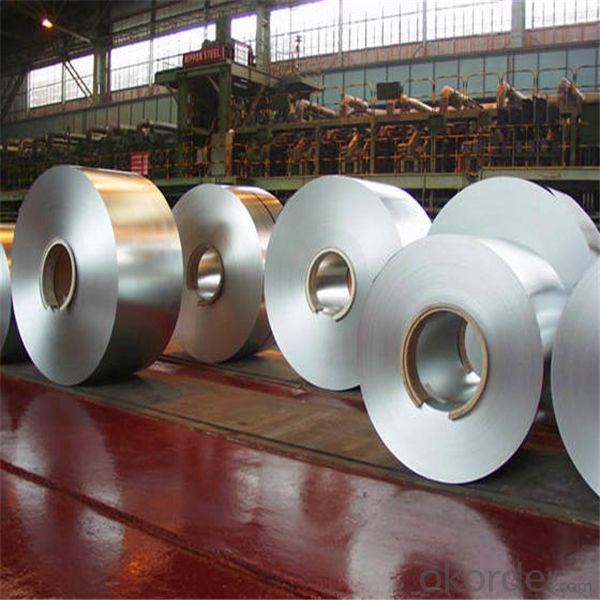
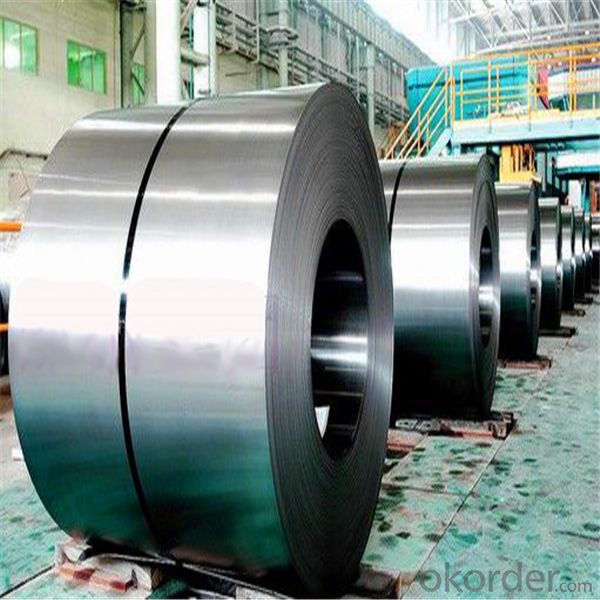
Production porcess
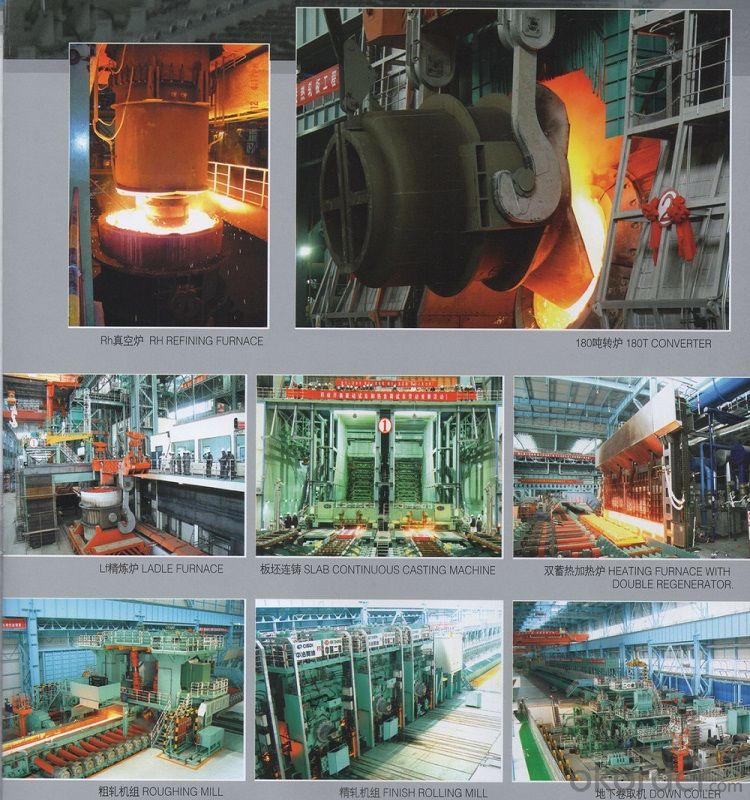
- Q: How does the thickness of a steel coil affect its applications?
- The thickness of a steel coil has a significant impact on its applications. The thickness determines the strength, durability, and versatility of the steel, making it suitable for various uses across different industries. In applications where strength is crucial, such as the construction industry, thicker steel coils are preferred. Thicker coils provide higher structural integrity and load-bearing capacity, which is essential in buildings, bridges, and infrastructure projects. Thicker steel coils also offer better resistance to bending, warping, and other forms of deformation, making them ideal for heavy-duty applications. The thickness of a steel coil also affects its durability. Thicker coils have a higher resistance to wear, corrosion, and damage, making them suitable for harsh environments or applications that involve constant friction or exposure to elements. For example, thicker steel coils are commonly used in manufacturing heavy machinery, automotive parts, and mining equipment, where durability is paramount. Furthermore, the thickness of a steel coil determines its versatility and adaptability. Thinner coils can be easily formed into different shapes and sizes, making them suitable for applications that require intricate designs or tight tolerances. Industries such as automotive, aerospace, and consumer electronics often rely on thinner steel coils for their lightweight and flexible nature. On the other hand, thicker steel coils may limit the range of applications due to their weight and reduced flexibility. They are more suitable for applications that prioritize strength and durability over versatility. These applications include structural components, large-scale machinery, and industrial equipment. In summary, the thickness of a steel coil plays a crucial role in determining its applications. Thicker coils offer increased strength, durability, and resistance, making them ideal for heavy-duty applications in construction and manufacturing industries. Thinner coils, on the other hand, provide versatility and adaptability, making them suitable for applications that require intricate designs or lightweight properties.
- Q: Want to get stainless steel sink. I want quality, durability, quiet, etc. Any suggestions??
- One part of our home is the kitchen, which is usually one of the busiest parts of the home. And part of it is the kitchen sink; as you look at the sink, you can hardly tell how much work is done in the sink. And in our daily activities, most of us use our sink in our own personal needs. Most of the time, we wash our face and clean our clothes, shoes and anything that needs to be washed in our sink. With this kind of job that the sink is going through in its everyday life, sink must be tough enough to take all the pressure of its job. Ordinary sink will not last long when it is use regularly. It may acquire rust, scratches and dent as we have use it in a regular basis, this is why we need to look for a sink that can manage to handle different usage and tasks in our home. In choosing a sink for our home, we must consider the quality and not the price alone. Stainless steel sink is easy to clean; stain and rust are needed not to worry because stainless steel sink is proven a rustproof material. But of course proper care for the sink should always be taken care of to make use of the sink for a very long time. In shopping for a sink, it can be hassle knowing that stainless steel sink is made of heavy material. And the good news is that stainless steel sink can be bought online. You can shop through the internet and you can have the freedom to choose a sink that will fit your kitchen.
- Q: How can the outer diameter and weight of steel coil be converted?
- Of course, the calculation is relatively coarse, and the volume has a lot to do with the tension.
- Q: PLS tell me all Foam Steel Characteristics and use?Thanks
- Foam steel [often steel foam] is used in applications that require light weight but high rigidity and strength. Watertight doors on modern ships are often made of foam steel. Pressure doors on aircraft are possible uses. As we keep striving for lighter weights in cars, foam steel might have some useful applications in bodies. There is a technical paper online that is in .pdf format that has a good discussion of the process and characteristics of foam steel.
- Q: Is sterling silver better than surgical steel as far as being hypoallergic in earrings? If I have a choice which should I get? Thanks!
- Surgical okorder /
- Q: How are steel coils used in the manufacturing of cables?
- Steel coils are commonly used in the manufacturing of cables to provide strength and support. The steel coils are typically wrapped around the cable core to enhance its structural integrity, increase tensile strength, and protect against external forces. This reinforcement allows the cables to withstand tension and bending, ensuring their durability and reliability in various applications such as power transmission, telecommunications, and construction.
- Q: i have a computer chair where the metal part that attachs the top part to the bottom with wheels has cracked around half of the assembly. my dad said it might be able to be repaired with jb weld. can jb weld fix it? how strong is jb weld? is it as strong as steel?
- the stuff is pretty strong... i have a friend who blew a hole in his crankcase of his 07 cr450f and used jb weld on it... added oil and rode on it.. the stuff is crazy strong just give it a day to dry
- Q: I need to know a name of any site which provides information on Steel structures??
- What information are you looking for specifically? information on steel structures could refer to lots of things. Try the American Institute of Steel Construction, or the American Society of Civil Engineers. Google to find them.
- Q: what is the refining process doing to raw materials in steel
- The refining process removes impurities. Impurities are anything that is not iron (Fe). Most steels are at least 98% iron, with a fraction of a percent of carbon, a dash of manganese, and traces of sulphur and phosphorus. These are called carbon steels. The non-iron elements are impurities found with the iron in the ore. A certain amount of carbon and manganese is beneficial to the strength of steel, so part of the refining process is designed to control the carbon and manganese content to give desired properties to the steel. Sometimes small amounts of these are added in the process. Besides the common carbon steels, there are many alloys of steel in use today. Alloying is done after the steel is refined to over 98% iron, and while it is a liquid. Various elements are added to the steel in controlled amounts to give it special properties. These include silicon, aluminum, magnesium, vanadium, beryllium, nickel and chromium, and sometimes molybdenum, tungsten and titanium. Alloy steels are still mostly iron, ususally at least 95%, but some stainless steels are only 75% iron because of large amounts chromium and nickel added to the mix.
- Q: Does aluminum or steel hold up better? We found a steel for 1/2 the price of aluminum, obviously its heavier but any other downsides? rust faster ect? also, does anybody know, in PA do you pay sales tax on trailers? and do dealers normally give you license plates to get the trailer home with? we live 3 hours away from the dealer so thats why i want all details :) would stink if i messed up!!
- We have an aluminum trailer over a steel frame. We used to have a steel trailer. There are two differences I see are the weight and how quickly they deteriorate. I personally prefer the aluminum over the steel, the upkeep is easier and they don't weigh as much which equates to fuel savings. Also if you have a lighter truck an aluminum trailer makes the wear and tear a little easier. You can also look at the size of the truck you are going to tow the trailer with, and the size of the horses inside. All together you definately don't want to exceed the weight limits of the truck. Hope this helps...
Send your message to us
Cold Rolled/Hot Dipped Galvanized Steel Coil Made in China
- Loading Port:
- China main port
- Payment Terms:
- TT OR LC
- Min Order Qty:
- 23 m.t.
- Supply Capability:
- 50000 m.t./month
OKorder Service Pledge
Quality Product, Order Online Tracking, Timely Delivery
OKorder Financial Service
Credit Rating, Credit Services, Credit Purchasing
Similar products
Hot products
Hot Searches
Related keywords
